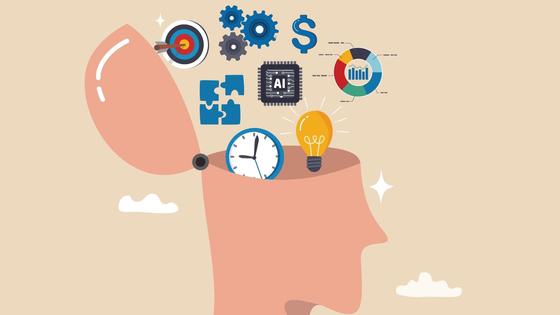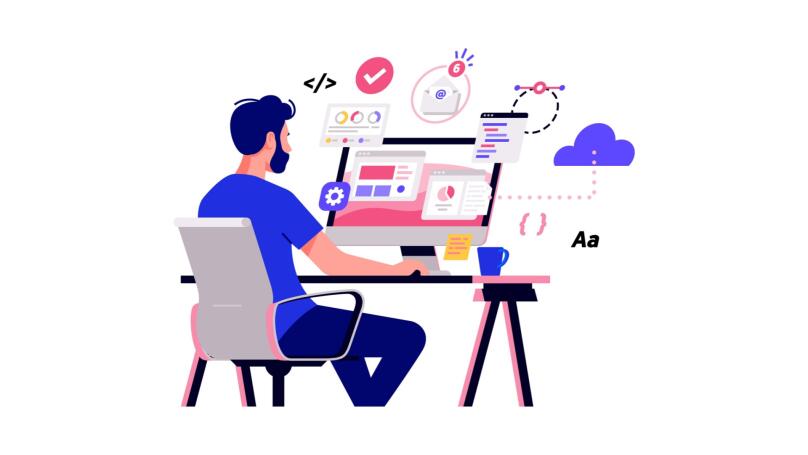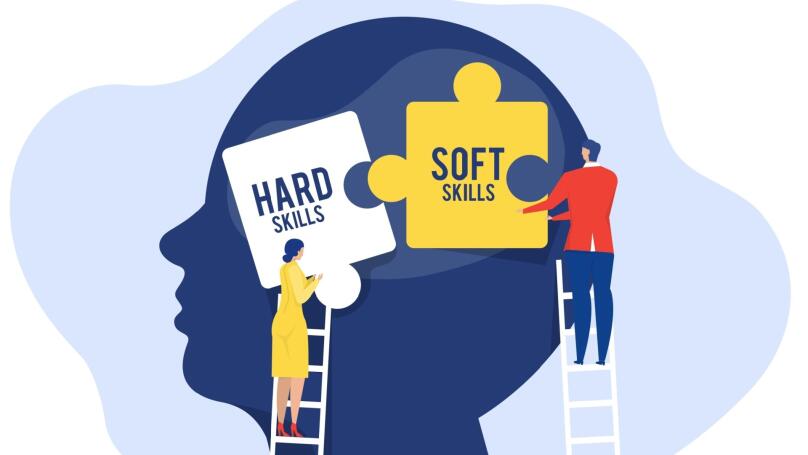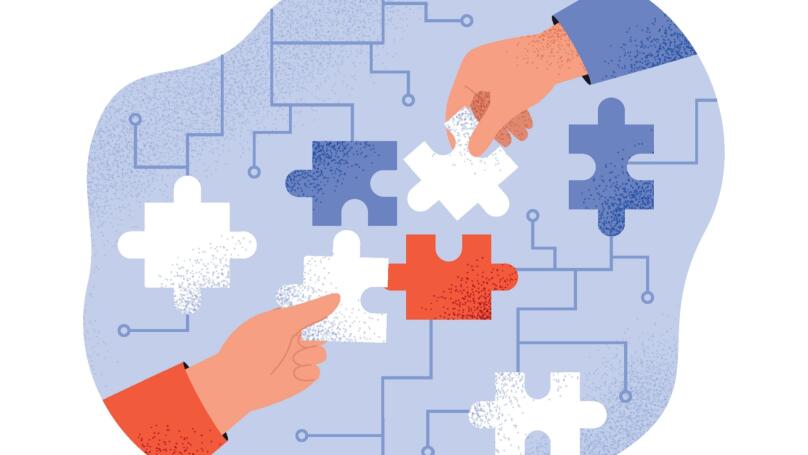What Do You Need to Be Able to Do in 2024? The Most In-Demand Skills in the Labour Market
Life in the 21st century implies constant development and the ability to adapt and adjust.

Now, humanity is trying to catch up with scientific and technological progress, not the other way around. The introduction of artificial intelligence into life, globalisation changes in the demands of society, and the rapid transformation of the labour market require us to develop ourselves and our self-control constantly. Let's look at a few essential skills that will help us on the road to success in 2024.
Is It Imperative to Work With AI?

In today's reality, almost no one hasn't heard of AI, ChatGPT, and Midjourney. Right now, society is divided into two: some are afraid of the rise of machines, whilst others actively use all their capabilities and functions to improve their productivity and quality of work. But is artificial intelligence really our friend or foe?
Well, let's start with the fact that artificial intelligence is a field of computer science that deals with developing and creating programs that can imitate human intellectual functions. In other words, it is a computer program that can think, analyse, and simplify routine tasks. For this purpose, AI also includes various techniques that allow computer systems to process information, extract knowledge and make decisions based on the available data. Indeed, AI makes it possible to process, analyse, and structure vast amounts of information and automate and optimise everyday life (both work and personal).
Currently, many neural networks can quickly perform complex tasks - transform audio into text with high accuracy, generate pictures based on your description, make diagrams and even presentations on selected topics, come up with headlines, translate texts into foreign languages and much more. I'm sure you'd agree that utilising these functions can make your life easier and save time. It is enough to understand the work of neural networks and learn how to formulate your requests correctly. So, artificial intelligence is not the future but a tangible present that must be reckoned with. The sooner you let it into your life, the faster you will increase the productivity of your projects.
The Most Popular and Essential Soft Skills in 2024

Soft skills are also becoming increasingly relevant in the labour market, pushing analytical and mathematical abilities to the background. Therefore, our list cannot do without soft skills. It is a set of "flexible" skills related to work's communicative aspects. Thanks to them, we can communicate effectively, cooperate, network, solve problems and adapt to different situations. However, "soft skills" are what AI can't replicate, so you should bet on them if you are afraid of losing to robots.
- 1Teamwork
Teamwork involves several people working together to create a shared project to achieve a specific goal. Nowadays, this skill is highly valued because it promotes creativity and a good atmosphere in the team, as well as the emergence of new joint ideas. The ability to work in a team is one of the competencies employers are most interested in (especially in large companies, where career growth and the possibility of reaching a managerial position are expected).
- 2Leadership
If teamwork is vital, then a person who everyone will follow is also necessary. Leadership skills not only demonstrate the potential for development but also determine the success of the team. A leader's job is to motivate, inspire, and guide. The most critical skills for a leader are coaching, communication, and self-discipline.
- 3Adaptability
The ability to be "flexible" is the key to success. Without this skill, you will never be competitively viable. In today's reality, change is happening every second, so you need to be able to adjust, adapt to changing circumstances, and quickly learn new skills and technologies.
- 4Time management
This skill involves being able to allocate your own and others' time wisely to maximise efficiency. It also includes stress tolerance, planning, and self-analysis. A person who always respects deadlines is a boon to employers.
- 5Critical thinking
People with critical thinking can analyse arguments and make their own, identify weaknesses in specific processes, people, and facts and eliminate them in time. The skill of questioning a generally accepted opinion or well-known knowledge allows for finding more effective and creative solutions to many problems.
- 6Emotional intelligence
It is the ability to give a clear and objective assessment of one's emotions and control them. It is also the ability to understand yourself and the people around you, to recognise their emotional background, desires, and motives. Furthermore, it is important to note that today, employers see this item as the most significant on the list of requirements for an employee. Emotional intelligence is defined by five leading indicators: self-awareness, motivation, social communication skills, empathy, and management of one's emotions.
- 7Creative thinking
This is a person's ability to create something new from what already exists. The ability to think differently and offer new, non-standard solutions is precious today. The ability to creatively approach the fulfilment of tasks puts a person above artificial intelligence, which does not possess such skills.
All these "flexible" skills are indispensable qualities for a successful career and self-development in 2024. They help build effective relationships, establish communication, solve problems and adapt to change. But what can you do if soft skills aren't your thing? Well, you can develop these skills and improve them with practice.
Lectera’s Online Courses by topic
How Can You Improve Soft Skills? Here Are Some Life Hacks From Lectera!

Firstly, as typical as it may sound, communicate! The primary soft skill is communication, as it is at the heart of all other soft skills. Find common topics for conversations and try to interest your interlocutor. Eye contact is also an important factor. It will make the person you are talking to feel that you are involved in the conversation.
Secondly, observe people more. Believe me, postures, gestures, facial expressions, and even the tone of voice can tell you a lot about a person. You will feel their emotional state, which will help build a dialogue and further communication.
Thirdly, practice speaking. If you find it challenging to maintain a conversation on serious topics with someone you don't know, then start with a simple one - discuss your favourite film or a recently-read book with a relative or friend. The more you talk, the better you'll get at it.
Finally, please take one of our soft skills courses where you'll quickly build the skill you need by learning fifteen to twenty minutes daily! After all, soft skills make our hard skills more flexible and effective. The modern labour market does not tolerate "narrow-mindedness" and requires all-round development - including personal growth!
Share this with your friends via:
Latest News

A significant stage in the development of the alternative education system has begun in West Northamptonshire in the UK: the County Council is actively calling on parents, guardians, and trustees to participate in shaping the future of this key area.

Outwoods Primary School in Atherstone, Warwickshire, having experienced deep sadness after the loss of their famous cat, Silla, has found solace in a new pet – a Maine Coon named Aloysius O’Hara.

In modern universities, artificial intelligence, and in particular ChatGPT, is rapidly transforming from a controversial tool into a full-fledged student assistant.

An innovative educational project is gaining momentum in UK primary schools, aiming to change attitudes towards video games.

The Massachusetts Institute of Technology (MIT) presents MIT Learn – a revolutionary online platform that opens a “new front door” to access university knowledge and resources.












 Test: What Business is Right For You?
Test: What Business is Right For You?
 “I’m Here for the Long Haul”: When Loyalty to a Company Becomes Toxic
“I’m Here for the Long Haul”: When Loyalty to a Company Becomes Toxic
 Freelancing, Remote Work, Office Jobs, or Consulting: How to Choose the Work Format That’s Right for You
Freelancing, Remote Work, Office Jobs, or Consulting: How to Choose the Work Format That’s Right for You
 Test: How Prone Are You to Abusive Behavior as a Manager?
Test: How Prone Are You to Abusive Behavior as a Manager?
 Test. What superpower would you possess if you were a superhero?
Test. What superpower would you possess if you were a superhero?
 Test. What Should You Let Go of Before Winter Ends?
Test. What Should You Let Go of Before Winter Ends?
